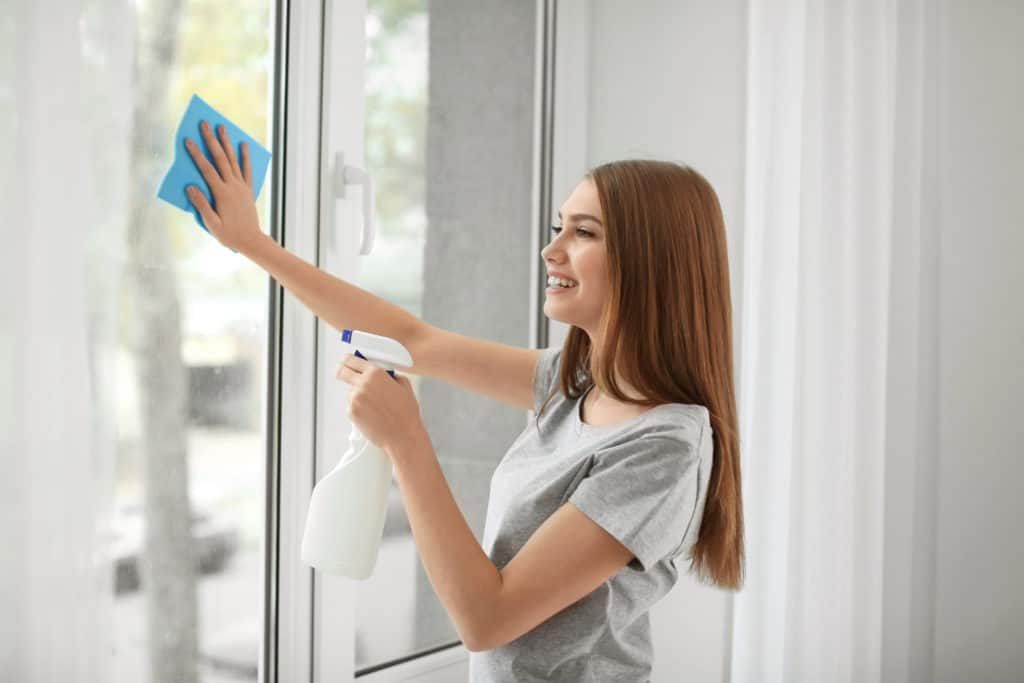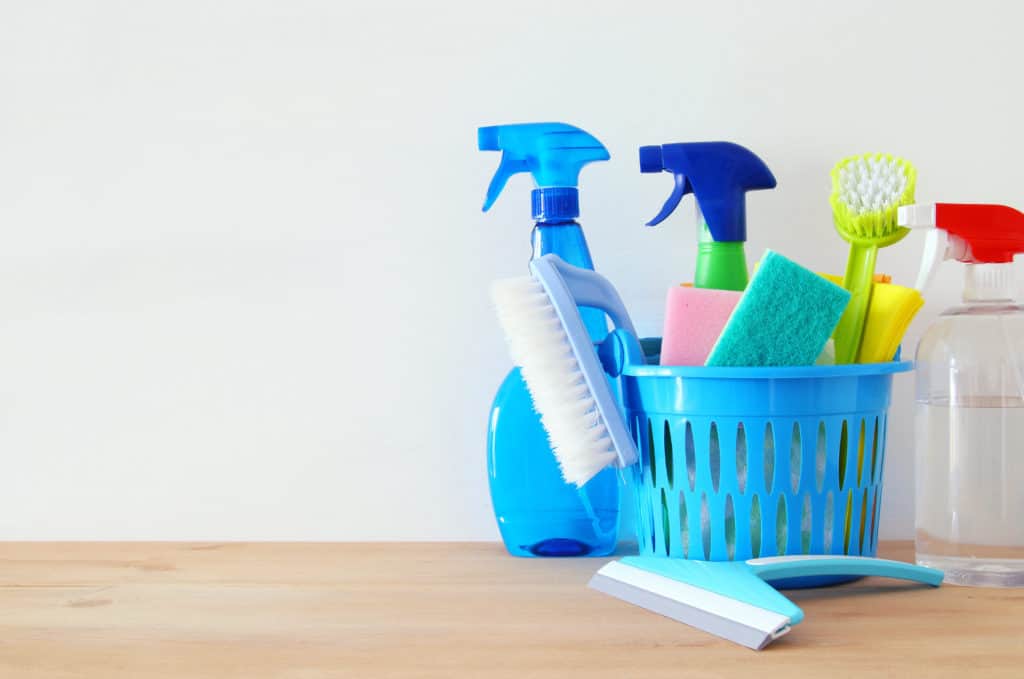
Solar panels work best when they are properly cleaned. But do they require a specific cleaner or can you use common household cleaners like Windex on solar panels?
Solar panels are protected by tempered glass, which is safe to clean with Windex. Because they are built to withstand harsh conditions, most cleaners are safe to use on solar panels. The main things you want to avoid are corrosive chemicals and hard water stains.
Windex will be safe for most solar panels, but just to be safe you should always check your product specifications to make sure it won’t cause any unforeseen damage. Proper cleaning techniques and chemicals can help you maintain solar panels for years to come. For more information about cleaning with Windex, alternative cleaners, and best practices, read below.
Windex Specifications
Windex is a popular glass cleaner that is often used in day-to-day home use. It’s a relatively gentle chemical that is safe to use on mirrors, windows, and other glass surfaces.
Solar panels are generally pretty self sufficient and will only need to be cleaned a couple times per year (unless you live in a particularly high-debris area). Fallen leaves, dust, pollen, bird droppings, ash and other debris can build up over time and will eventually reduce the amount of light that your panels are receiving.
Because the most sensitive elements of solar panels are protected beneath the panel and inner wiring, it’s safe to use common cleaners on the surface of the panel. Windex is not particularly corrosive and won’t leave lasting stains as long as the panel is wiped down.
If you only have a couple of solar panels to clean, a spray bottle of windex could be a good option. However, if you’re maintaining a large number of them, a spray attachment or industrial-sized bottle of Windex might be a better choice.
However, if you use a Windex sprayer attached to a hose, there’s a possibility you could have hard water stains after the water dries. Hoses often draw on groundwater that has dissolved calcium and magnesium deposits. Hard water can leave stains that will require additional cleaning, so be careful if you choose this option.
For more information on removing hard water stains from solar panels, visit our article here.
Windex Alternatives

Windex is a nice cheap cleaner that works well for solar panels. But if you’re looking for other choices or larger bulk options that can be used to clean larger areas, there are some other alternatives to explore too.
Bio Clean: Eco Friendly Hard Water Stain Remover
As the name might suggest, this cleaner is also environmentally friendly! Generally if people are interested in buying and cleaning solar panels, they want what’s best for the planet. This cleaner fits the bill and is a great option for sustainable and safe glass cleaning.
This product isn’t specifically designed for cleaning solar panels, but it will still work well for that purpose. You can also use it around the house to clean car windows, porcelain, granite, and other materials that may become stained and dirty over time. It’s a good all-purpose cleaner!
Bio Clean is specifically used to remove hard water stains, so it can be very useful on solar panels that were cleaned with hose water or have spotting from dirt and rainfall. It’s a foaming cleaner and works well on glass, but a single bottle might be a bit small for large areas of solar panels.
For more information on this cleaner, including size variations, customer reviews, pricing, and delivery options, visit this link.
One Shot 1S-SPCHEC Solar Panel Cleaner Concentrate
This cleaner comes with a wide spray nozzle attachment that makes it easier to cover larger areas of the solar panel. This cleaner is specifically designed to clean solar panels, so it’s definitely a safe option to use.
It’s also environmentally friendly, so you don’t need to worry about chemical runoff. It’s also ammonia free and cleans without leaving streaks or lingering fumes.
One Shot is a good all-around option that many customers have enjoyed. The only downside is that it comes in a somewhat small container.
For more information on this cleaner, including size variations, customer reviews, pricing, and delivery options, visit this link.
Glass Gleam Solar
This glass cleaner is highly concentrated and it can be used to make massive quantities of cleaning fluid. One bottle of Glass Gleam Solar can be combined with water to make a grand total of 500 gallons! So if you get this cleaner, it’ll last you for a long time.
The recommended cleaner ratio is 2% cleaner, 98% water.
This product is also quite affordable, especially when you consider how much cleaner it will make once the concentrate has been mixed with water. It also has water-softening properties that can be used to remove hard water stains.
Like the previous option, Glass Gleam Solar is environmentally friendly and ammonia free. It’s safe to handle and will keep your solar panels clean and degreased.
For more information on this cleaner, including size variations, customer reviews, pricing, and delivery options, visit this link.
Best Cleaning Practices

Solar panels operate best when they get 100% unobstructed access to sunlight. Because of their design and weather-proofing abilities, they don’t need to be cleaned very often. Rainwater and wind will usually remove the large pieces of debris.
However, over time dust, pollen, ash, and other small particles can start to build up and reduce the efficiency of your panels. When this happens, it’s time to clean!
There are a variety of professional solar panel cleaners who are trained to care for and maintain these items. If you have a particularly large setup or have them installed in your roof, it’s usually safest to call in a professional cleaning team.
As mentioned above, solar panels also shouldn’t be cleaned with hard water. Garden hoses are often tempting because of the power and reach they offer, but they can leave streaks and spots from hard water that will need to be cleaned again later anyway.
To avoid these hard water stains, it’s best to use deionized water to rinse the panels off.
Finally, you should always squeegee the solar panels once they’ve been cleaned and rinsed. This will prevent damage to the waterproof seals and will leave the panels looking glossy and beautiful!